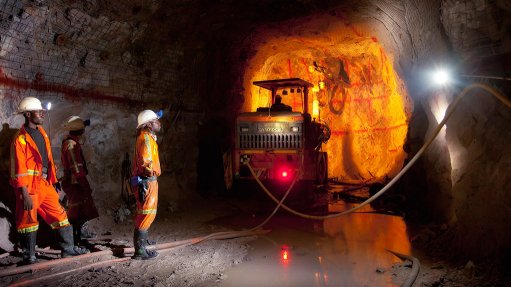
CAPE TOWN (miningweekly.com) – Nigeria is hoping to become a much bigger player in African mining, following years of neglecting the industry in favour of oil.
A Nigerian government delegation said it had introduced a range of incentives to investors and was keen to re-emerge as a key mining destination on the continent.
“We used to be a big mining destination in the past, but after the discovery of oil, the mining industry took a downturn. Government wants to change all of that,” Nigerian Geological Survey Agency director-general Alex Nwegbu told delegates at the Investing in African Mining Indaba in Cape Town.
At one time, Nigeria was the largest producer of columbite and the sixth-largest producer of tin in the world.
The country’s government had now earmarked a range of minerals, which it believed had the potential to contribute significantly to Nigeria’s growth domestic product.
Bitumen was one of them, with huge reserves being discovered and further studies expected to confirm more. Preliminary surveys indicate the equivalent of more than 40-billion barrels of bitumen in the country.
The Nigerian government’s policy to generate power through more coal resources had paved the way for more investment. Nwegbu said there were 22 coal blocks, which were seeking investment.
Extensive limestone deposits, as well as iron-ore and gold, which had occurred in the schist belts of north-west and south-west Nigeria, had also been identified as potential money-spinners for Nigeria, which currently boasted a population of 160-million.
Nwegbu said the entire country was covered by airborne geophysical surveys, with data and maps identifying promising areas.
The country also had other mineral resources including tin, tantalite, nickel, silver and copper.
Nwegbu said Nigeria’s government had made changes to its policy to ensure that the private sector was the owner and operator of projects, with government as regulator.
It was hoping to revive its mining industry through incentives, which include competitive tax rates and a waiver of customs and import duties for plant, machinery and equipment imported for mining operations.
A Nigerian delegation said over 500 local companies were operating at different levels in the country, mainly involved in quarrying and small-scale mining, while more than 40 foreign companies were involved in exploration programmes.